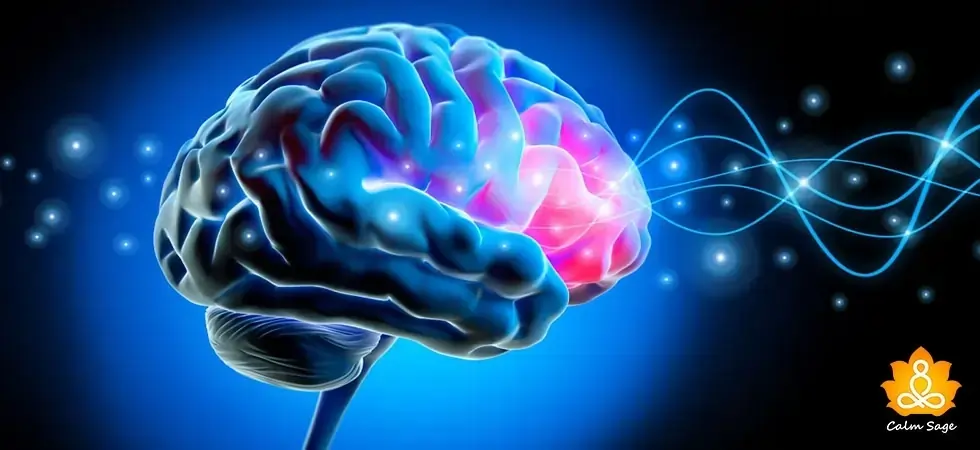The Psychology Behind “Daddy Issues” And How to Heal

I have often heard people on social media, online forums, and even face-to-face conversations use “daddy issues” casually with a hint of disdain. It’s a term that I couldn’t understand the use of or why it was so casually used.
In any conversation, using daddy issues just adds an invisible weight to the discussion, but what does it truly mean? Do people who use the term truly understand the psychology behind “daddy issues”?
While it’s not an official mental health diagnosis, this term is used to describe any emotional setbacks a person inherits from having a turbulent relationship with their father or a father figure in their life.
In recent years, “daddy issues” have been used as a blanket term for relationship issues, low self-esteem, and trust issues. But, does the relationship you have with your father truly affect your adult life experiences or relationships? Let’s learn more about the psychology behind the term “daddy issues” in this article.
Daddy Issues: What Does It Mean?
The first thing you need to know about the term is that “daddy issues” refers to emotional or psychological challenges that stem from your relationship with your father or a father figure.
These issues can manifest in different ways, but can still influence your thoughts, feelings, and behaviors, especially in your adult relationships.
Daddy issues can be a result of negative experiences such as having an absent, abusive, or neglectful father. This kind of unhealthy relationship with a father or father figure can also result in an inability to trust other men in adult relationships or relying too heavily on a male person in your life.
The Psychology Behind Daddy Issues
The concept of daddy issues isn’t pop jargon — it has roots in psychological theory. Various studies have shown that early relationships, especially with parents, can shape our development and personality.
Freud’s psychoanalytic theory, for one, suggests that unresolved conflicts during childhood can impact your psyche into adulthood.
The idea of daddy issues can also be traced back to Freud’s “Oedipus complex”. This complex involves a child’s unconscious desire for the opposite-sex parent and jealousy towards the same-sex parent.
With time, this concept evolved into the idea of the “father complex” which encompasses various dynamics between a person and their fathers or father figures.
If you’ve grown up in a household where the father or the father figure was physically or psychologically absent, abusive, or neglectful, then you can develop difficulty in building mature relationships with males in your adult life.
If we talk about attachment theory, then this theory can give more insights into daddy issues. Attachment theory emphasizes the importance of early childhood relationships and their role in shaping our attachment patterns.
Secure attachment can be characterized by trust and intimacy which typically comes from consistent caregiving, while insecure attachment can come from inconsistent, abusive, absent, or neglectful parenting.
What Causes Daddy Issues?
Daddy issues can come from various factors such as;
1. Having an Absent Father
A father or a father figure’s physical or emotional absence can leave lasting impacts on a child’s development – psychological and emotional.
2. Having a Neglectful or Abusive Childhood
Childhood experiences of neglect, and physical, emotional, or even sexual abuse by a father figure can cause one to develop daddy issues. It can make one feel fearful and develop trust issues regarding men in their lives.
3. Having Divorced or Separated Parents
Family disruptions such as divorce or separation can also cause an unhealthy rift between a father and their child, causing unresolved issues in the relationship. This can also contribute to the development of daddy issues.
Having physically or emotionally abusive fathers growing up can also contribute to daddy issues, but it can also be if your father was;
- Controlling or overbearing
- Overly detached
- Financially or emotionally unreliable
- A source of rejection, or
- A substance abuser
In a 2015 study, it was also found that insecure attachment patterns with a father could also be a contributing factor in depression symptoms in daughters.
When it comes to why people develop daddy issues, it can be safe to say that various factors could be contributors. Some factors include negative early childhood experiences, dysfunctional relationships between parents, or societal influence.
Symptoms of Daddy Issues
How do you know if you’re struggling with daddy issues? Here are some symptoms of daddy issues you can watch out for. Daddy issue symptoms can include;
- Fear of abandonment in your adult relationships
- Fear of rejection in your adult relationships
- Low self-worth and self-esteem
- Obsessively needing approval from partners
- Engaging in unhealthy behaviors such as codependency or avoidance
- Experiencing intense emotions or mood swings in response to adult relationships
Having a healthy and secure father-child relationship can be important for your mental and emotional well-being. Having a supportive and nurturing father or a father figure can offer you stability, guidance, and a strong sense of security growing up.
This healthy relationship can lay the foundation for healthy adult relationships you’ll have with a partner/spouse, and can do well for your self-esteem.
Can We Treat Daddy Issues?
With the right support, understanding, and intervention, daddy issues can be resolved. Here are some ways you can work on resolving daddy issues;
1. Become Aware of the Problem
First, you need to recognize and acknowledge the impact the relationship with your father has had on you growing up. This means you need to be aware of your father’s actions and their impact on your thoughts, feelings, and behaviors.
2. Seek Help
Another thing you can do to cope with insecure attachment to your father is to reach out and seek help from a professional. A therapist or a counselor can help you explore and address any underlying issues in a safe and supportive environment.
3. Work on Emotional Healing
You can also work on healing yourself emotionally. This can be done by engaging in self-care practices such as journaling, mindfulness, or creative and expressive outlets to process and release any pent-up or negative emotions you’ve been holding inside your heart for a long time.
4. Set Healthy Boundaries
To resolve daddy issues, you can also learn to set healthy boundaries in your relationships to protect your emotional well-being and boost self-respect in your adulthood.
Boundaries aren’t just to protect your well-being, but also your relationships that might get affected by the pain of negative childhood experiences and your relationship with your father.
1. Practice Forgiveness
Most of all, you need to work towards forgiveness – for yourself and any wrongs from your father or father figures. This forgiveness can act as an act of closure and can facilitate healing and recovery from insecure attachment patterns.
Wrap Up…
In the end, daddy issues can be a multi-faceted experience that can be influenced by different factors, ranging from early childhood experiences to societal norms.
While this insecure attachment pattern can present its sets of challenges in your adult relationships – interpersonal or romantic – they can be easily dealt with.
With self-awareness, support, and a strong commitment to healing, you can overcome daddy issues and foster healthy and fulfilling connections with your parents, partners, and yourself.
I hope this article helped you understand what daddy issues are and how to resolve them. Let us know what you think about the psychological impact of daddy issues on one’s life and relationships in the comments section below.
Take Care!




















